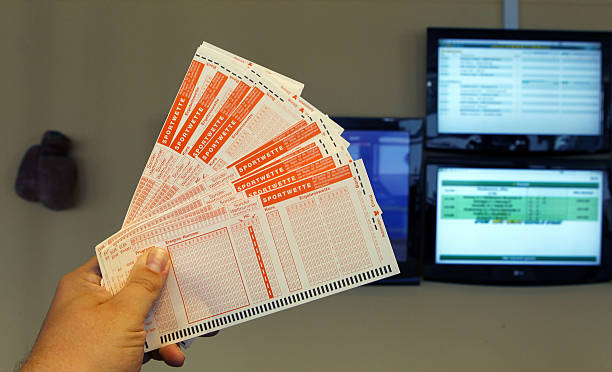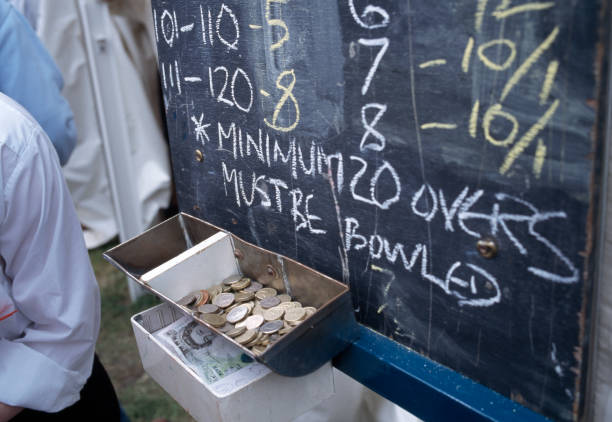
Sports betting can be an exciting and potentially profitable hobby, but without proper bankroll management, it can quickly become a financial burden. One of the most crucial aspects of responsible gambling is setting a betting budget and sticking to it. A structured approach to betting can help prevent losses from spiraling out of control, ensuring you enjoy the thrill without financial regret.
In this comprehensive guide, we will walk you through seven powerful money management tips to help you properly set a betting budget and stay disciplined, giving you the best chance to bet responsibly and sustainably.
1. Define Your Betting Bankroll
The first and most essential step in responsible betting is establishing a fixed betting bankroll—the amount of money you are willing to risk for gambling.
How to Set Your Bankroll:
- Only allocate disposable income (money you can afford to lose without impacting essential expenses).
- A good rule of thumb is to set aside 1-5% of your monthly income for betting.
- Your bankroll should be separate from personal savings, bills, and emergency funds.
Example:
If you earn $3,000 per month, a reasonable betting budget could be $100-$150, depending on your risk tolerance.

2. Establish a Staking Plan
A staking plan determines how much of your bankroll you wager on each bet. Without a strategy, it’s easy to make impulsive decisions that could wipe out your funds quickly.
Common Staking Methods:
- Flat bet: bet the same amount on every wager (e.g., 2% of your bankroll per bet).
- Percentage bet: Adjusting bet sizes based on a percentage of your current bankroll.
- Confidence-Based bet: Higher stakes for confident picks, lower stakes for riskier bets.
Best Practice:
Use Flat bet or Percentage bet to maintain consistency and minimize risk.
3. Set Daily, Weekly, and Monthly Limits
To prevent over-Placing bets, set firm limits on how much you can wager within a given timeframe.
Suggested Limits:
- Daily Limit: 5% of your total betting bankroll.
- Weekly Limit: 20% of your total bankroll.
- Monthly Limit: 100% of your pre-set bankroll (never exceed this).
Why It Works:
Setting limits helps avoid chasing losses and ensures that bet remains a controlled activity rather than a financial drain.
SUGGESTED FOR YOU
The Pros & Cons of Betting: 7 Powerful Insights on High-Scoring vs. Low-Scoring Football Teams
4. Track Every Bet You Make
To stay on top of your bet budget, keeping detailed records of your wagers is crucial.
What to Track:
- Bet type and amount
- Odds and potential returns
- Win/loss outcome
- Running total of bankroll
Tools to Use:
- Spreadsheets (Google Sheets, Excel)
- Betting tracker apps (BetBull, SmartBet Tracker)
- Notebook (if you prefer a manual approach)
Why It Helps:
A record of past bets allows you to analyze trends, identify bad habits, and refine your betting strategy over time.

5. Avoid Chasing Losses
One of the biggest mistakes bettors make is chasing losses—increasing bet sizes or making reckless bets to recover lost money.
Signs of Chasing Losses:
- Increasing bet sizes irrationally.
- Placing multiple bets in frustration.
- Betting on unfamiliar sports or markets.
How to Avoid It:
- Accept losses as part of betting.
- Stick to your original staking plan.
- Take a break when emotions start affecting decisions.
6. Use Responsible Gambling Tools
Most online sportsbooks provide features to help bettors stay within their limits.

Useful Tools & Features:
- Deposit Limits: Set a maximum amount you can deposit weekly/monthly.
- Wagering Limits: Restrict how much you can bet per day.
- Loss Limits: Cap the amount of money you can lose before locking your account.
- Self-Exclusion: Temporarily ban yourself from bets platforms if needed.
Where to Find These Tools:
Check your sportsbook’s responsible gambling section to activate these features.
7. Know When to Take a Break
Placing bets should be fun, not stressful. If you find yourself feeling anxious, frustrated, or obsessed with betting, it’s time to step away.
Signs You Need a Break:
- Betting beyond your budget.
- Feeling stressed or anxious about losses.
- Using betting as an escape from life problems.
Tips for Taking a Break:
- Set a cooling-off period (one week, one month, etc.).
- Engage in alternative hobbies (sports, reading, gaming).
- Seek professional help if gambling becomes a problem.
CHECK OUT TOP 3 FREE BETTING PREDICTION SITES
Accuratepredict.com Soccerpredictions.net Betloy.com
Conclusion: Master Your Betting Budget for Long-Term Success
Placing bets responsibly is key to long-term success and enjoyment. By properly setting a bet budget and sticking to it, you ensure that gambling remains an exciting activity rather than a financial burden.
Recap of Key Strategies:
✔️ Set a fixed bet bankroll from disposable income. ✔️ Use a staking plan to manage bets effectively. ✔️ Establish daily, weekly, and monthly limits. ✔️ Track all bets to analyze spending habits. ✔️ Avoid chasing losses by sticking to a plan. ✔️ Utilize responsible gambling tools. ✔️ Take breaks when needed to maintain a healthy mindset.
Call to Action:
What strategies do you use to manage your betting budget? Share your thoughts in the comments below!









